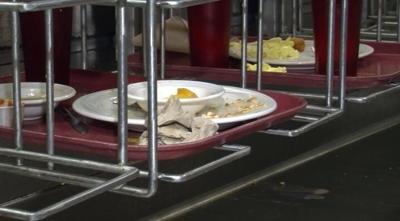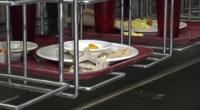SALISBURY, Md.- Whether it is groceries that have passed their due date or leftovers that have been left over for a little too long, we are all guilty of wasting food. But at Salisbury University, they are giving that waste new life, with a program that has them standing out above all others within the University System of Maryland.
At SU, what is left on the tray doesn't end up in the trash.
“We achieved a recycling rate over the last two years of 50 to 51 percent,” said Campus Sustainability Director Wayne Shelton.
The bulk of that recycling comes from the school's food composting program.
“All of these sources of material added up significantly, to the tune of about 275 tons just this past year,” noted Shelton. “So that was a significant drop in our overall amount of material going to the landfill.”
That works out to about 53 pounds of recycled food waste per student each year, which the Maryland Department of the Environment says is more than any other University System of Maryland campus.
“I think it's great how far we've moved up in comparison to other colleges and universities in Maryland,” said Maggie Cummings, a junior at SU.
“I think it's pretty cool that we're doing so much to help the local farmers of our community, and to reduce waste,” added sophomore Rachel Silva.
From prep-waste collected in green bins, to the un-eaten food and paper products rounded up at the tray drop-off, it all goes through a special system, which grounds everything down for composting.
“The material that leaves us goes into a bin, is driven up to Delaware, to a company called Blue Hen Organics,” Shelton explained. “And they take all the labor on, of converting this to the soil amendment product.”
That product is then sold for commercial and residential applications as an organic fertilizer, with some of it making its way back to campus.
“We use it in new planting beds, or to amend a poorer quality of soil, something like a sand-base,” said Shelton. “This adds the organic matter and nutrients, so we don't have to use fertilizer as much. And we've found that based on that process, and also mulching the grass in place, we've had a significant drop in how much fertilizer we've used around campus.”
Through this process, Salisbury University says it is able to keep about a third of its yearly waste production from going into local landfills.





